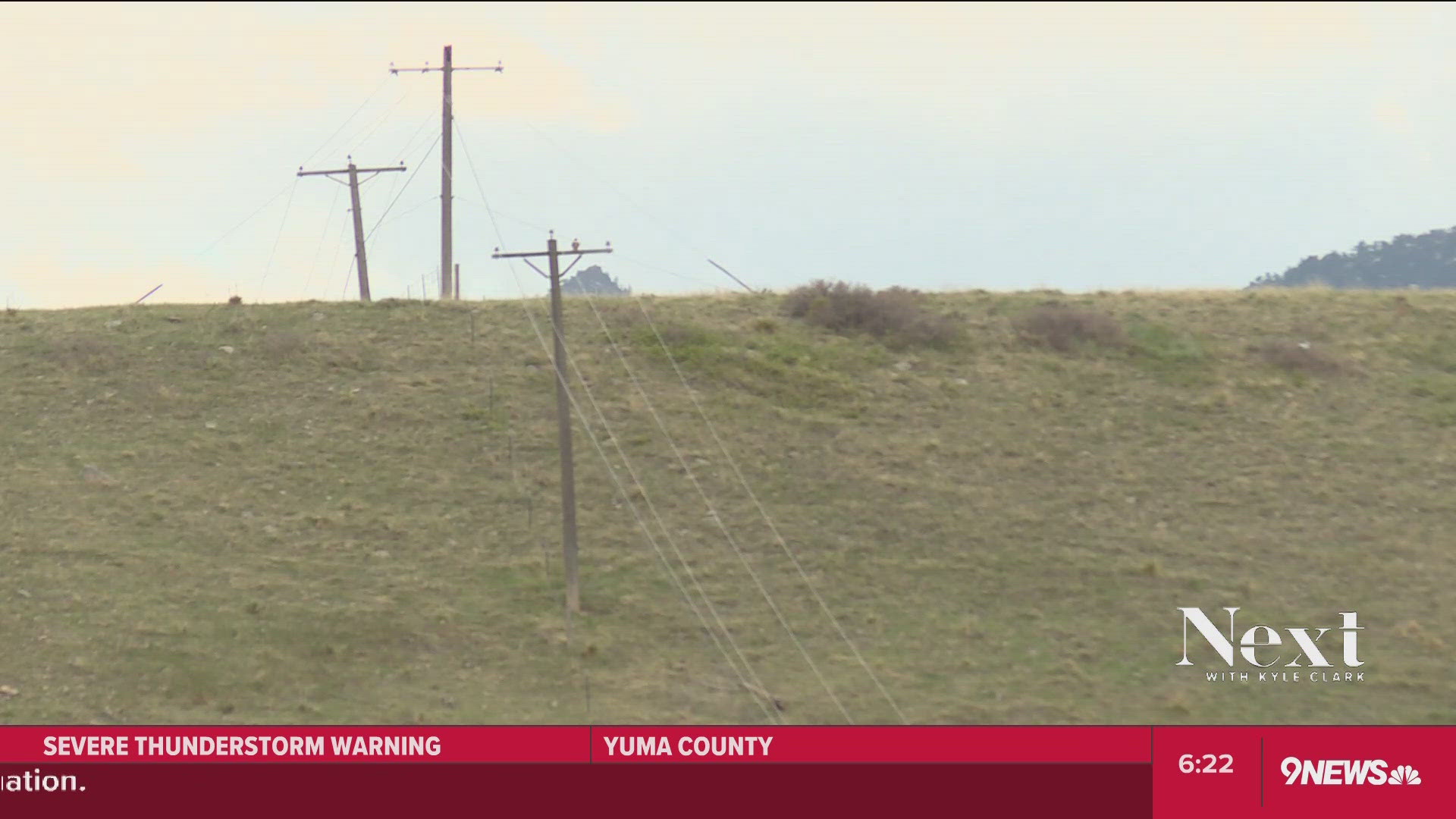BOULDER COUNTY, Colo. — Xcel Energy is only supposed to do a public safety power shutoff (PSPS) as a last resort.
When Xcel purposefully shut off power to more than 50,000 customers on April 6 as part of its first PSPS in Colorado, fire experts in Boulder County were not seeing conditions that called for the most extreme response.
“The conditions that we saw in the Marshall Fire were not the same conditions we saw at the beginning of April during that weekend wind event,” Seth McKinney, Boulder County’s fire management officer, said.
McKinney looks at three factors when determining fire risk.
Weather, topography and fuels – grass and weeds.
“Our fuels are really green,” McKinney said. “We felt that the fire danger wasn’t as high when considering those three factors instead of just looking at the wind.”
Boulder’s wastewater facility nearly overflowed sewage into Boulder Creek because the PSPS shutoff power to both substations that supply power to the facility. A 2006 agreement between the city of Boulder and Xcel calls for one of the substations to act as the backup power supply.
Through an open records request, Next with Kyle Clark obtained an email from Boulder’s disaster management director to Xcel with the subject line: Wastewater facility power outage.
The email included a letter with an assessment from both the city of Boulder fire chief and from McKinney.
McKinney’s summed it up with, “In short, these are not the same conditions we saw leading up to the Marshall Fire.”
“We wanted to give some insight to Xcel as to what we were seeing, what we were considering at the ground level in fire management,” McKinney said. “Yes, it’s windy, but the fire danger conditions were not the same as the Marshall Fire.”
Xcel has a hearing with the Colorado Public Utilities Commission on Monday morning, when it will have to explain its decision to use a PSPS.
“If we did have a power line start a fire, it wasn’t going to have the same spread potential like we’d seen previously,” McKinney said. “We had drought conditions six months leading up to the Marshall Fire, our fuels were ready to go. We had the winds during the April event, but we did not have the same fuels conditions.”
SUGGESTED VIDEOS: Next with Kyle Clark

